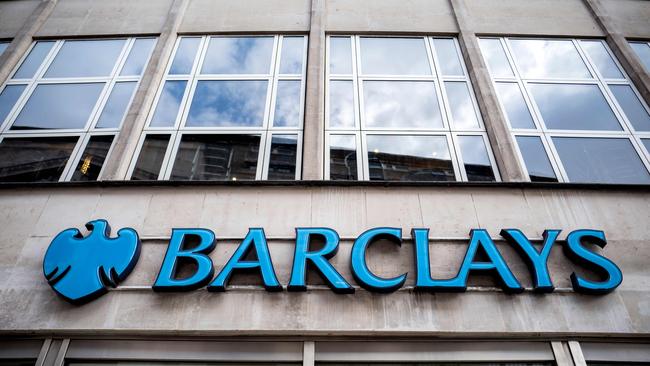Barclays to book $787m loss after debt-sale snafu
The British bank is buying back structured notes after selling too many of them.

Barclays said it is buying back a tranche of structured notes at a loss of about £450m ($787m) after selling too many of them.
Structured notes are a type of debt instrument linked to an underlying reference such as the S&P 500 index or oil.
The British bank had registered with the US Securities and Exchange Commission to sell up to $US20.8bn ($28bn) of the notes. It exceeded the limit by $US15.2bn.
Barclays said it was conducting a review of the matter. Regulators were also “conducting inquiries and making requests for information”. As a result, the bank will delay the start of a £1bn share buyback program to the second quarter.
Such expensive flubs are rare in the world of banking, which is built upon a web of technology, policies and procedures designed to eliminate the risk of human error.
But mistakes happen. Citigroup in 2020 accidentally sent $US900m to creditors of cosmetics company Revlon. Last year, the UK arm of Banco Santander mistakenly paid £130m into random accounts.
Barclays is known for its large fixed-income business, so the mistake is especially surprising. Analysts struggled to make sense of the announcement.
“I’ve seen a lot of structured note issuance but I’ve never seen this kind of matter before,” said Joseph Dickerson, an equity research analyst at Jefferies.
“It looks like an operational or legal failure,” said Jerome Legras, managing partner at Axiom Alternative Investments, a fund that specialises in bank debt. “It’s hard to believe they would do such a stupid thing.”
Barclays will have to buy the notes back at the original purchase price. The estimated loss indicates that a substantial amount of the notes are trading below what investors paid for them. In fact, Barclays is more underwater than it appears: the bank’s calculation includes tax breaks associated with the loss.
Barclays’s iPath Pure Beta Crude Oil ETNs maturing in 2041 and iPath Series B S&P 500 Vix Short-Term Futures ETNs due in 2048 are among the affected notes. The bank stopped selling and issuing new notes a few weeks ago, saying it didn’t have the capacity to do so. They are still trading on the New York Stock Exchange.
Barclays breached the limits of what is known as a shelf registration, which is put in place so an issuer can parcel out the sale of a chunk of bonds without seeking regulatory approval each time. The limit is typically outlined ahead of time.
The Wall Street Journal


